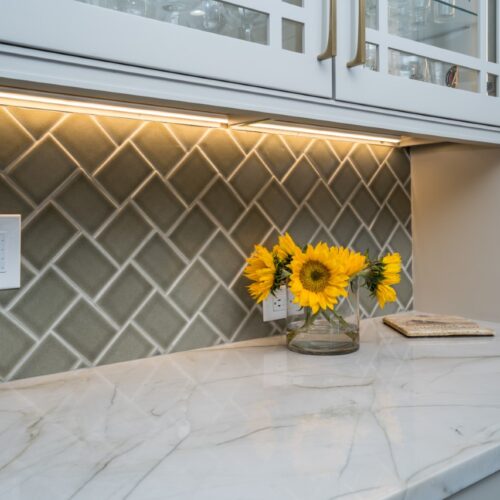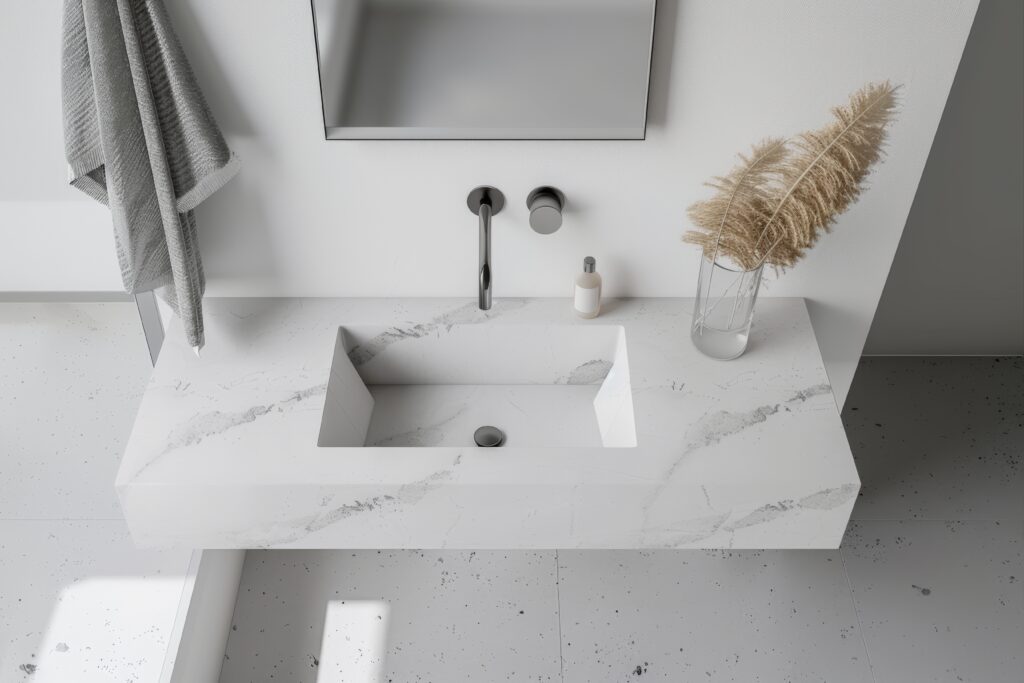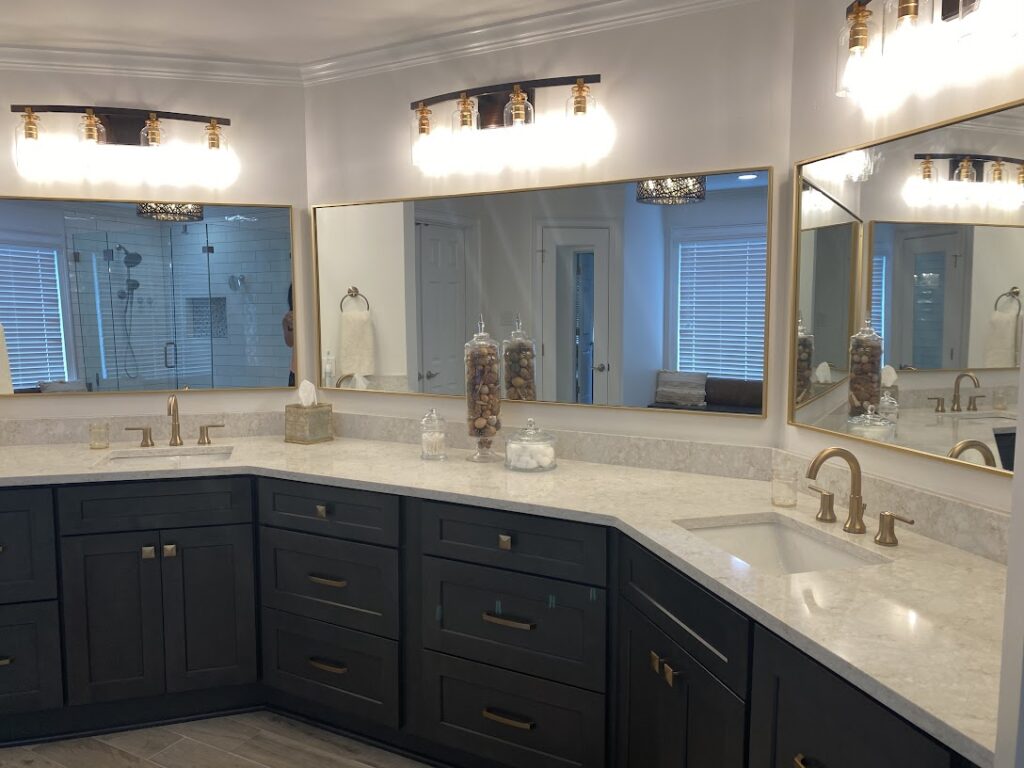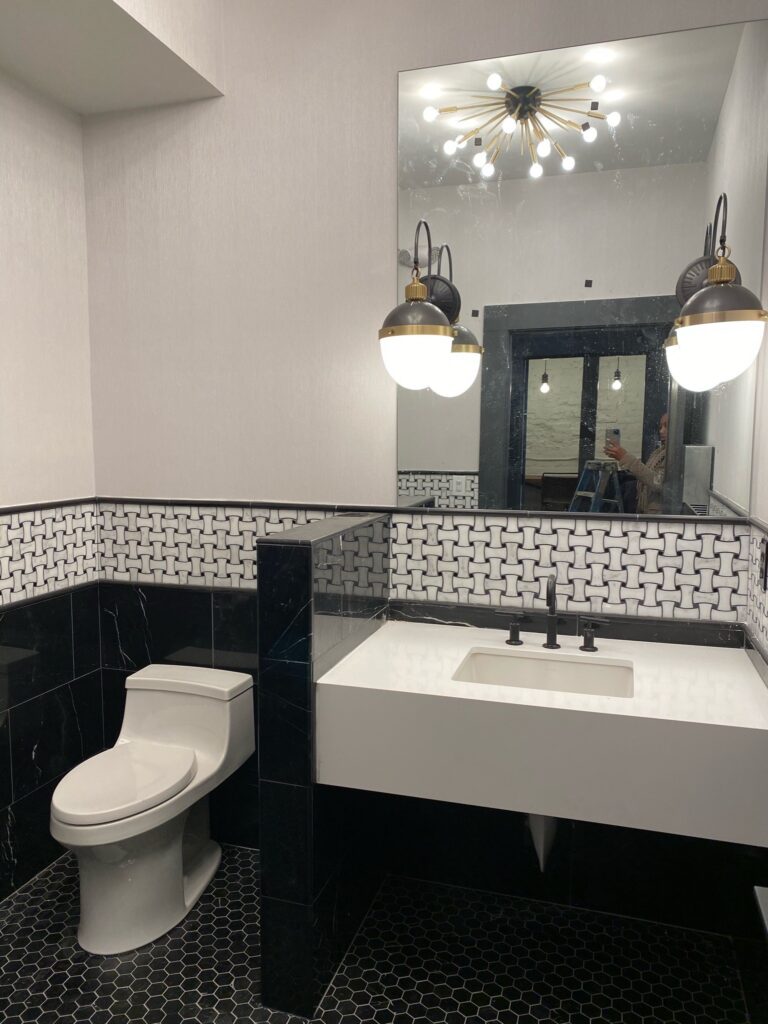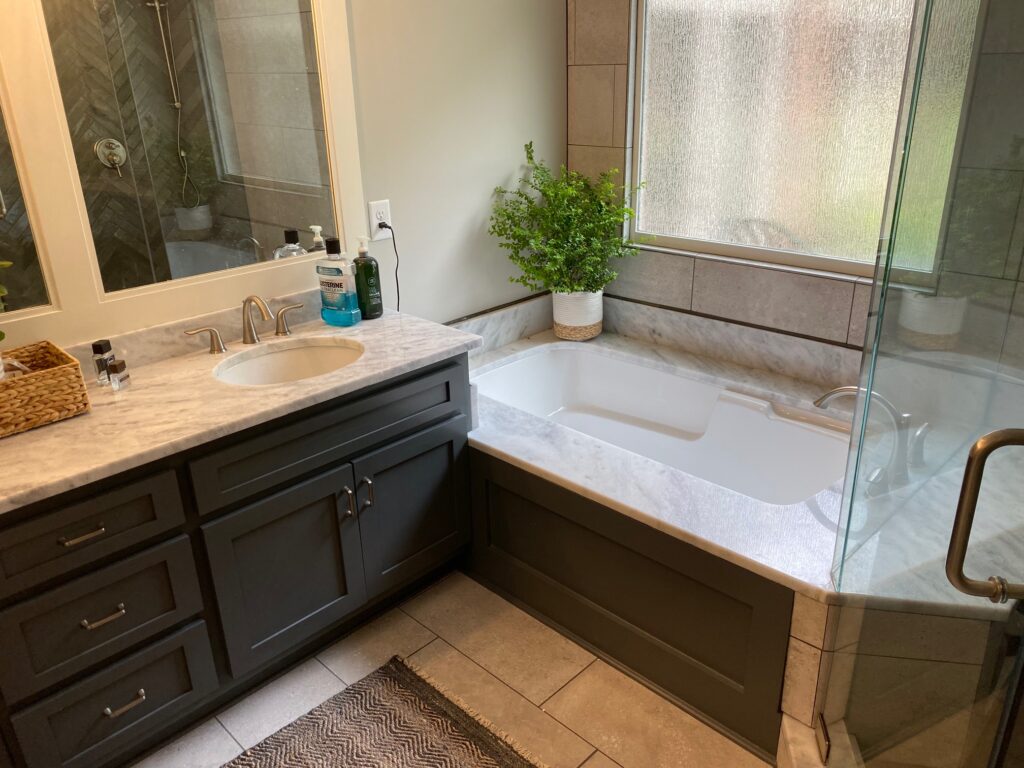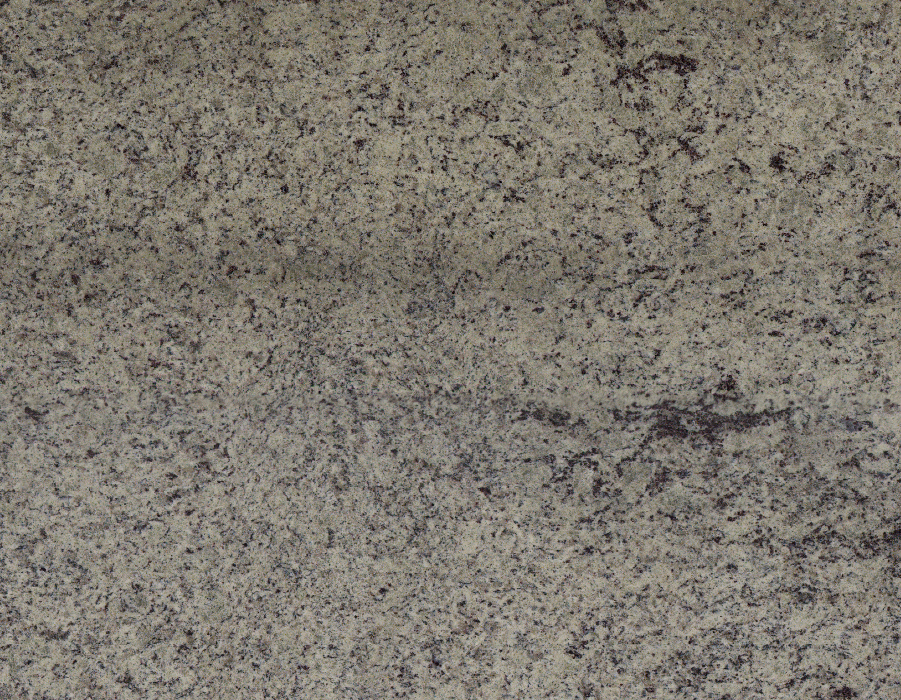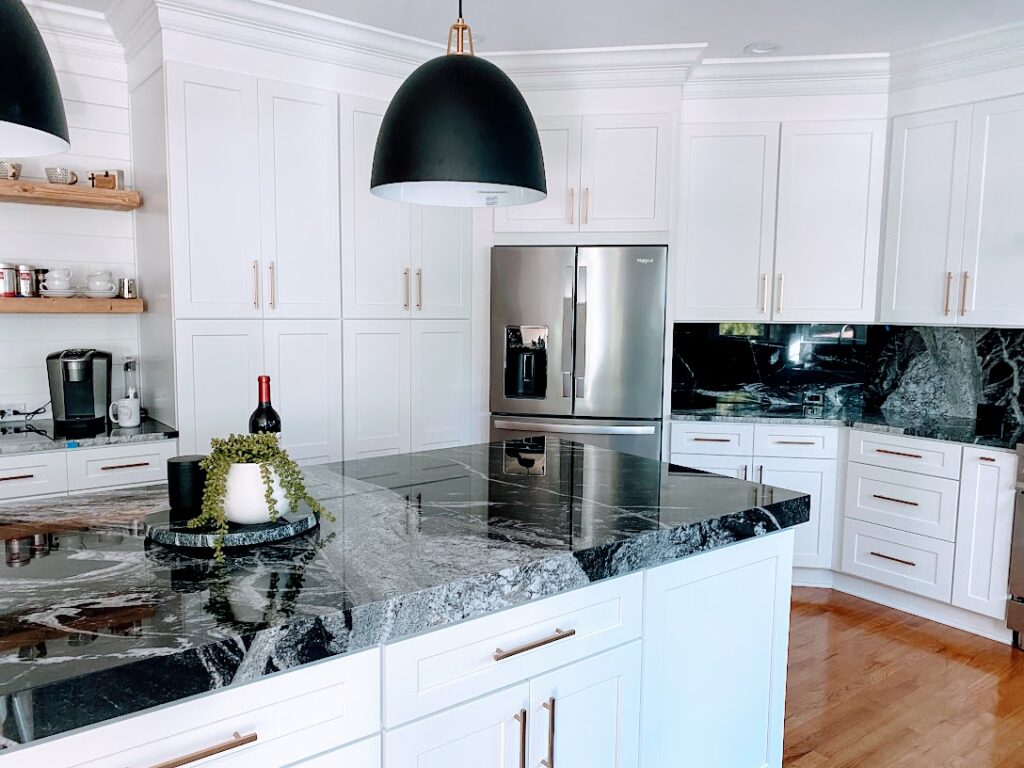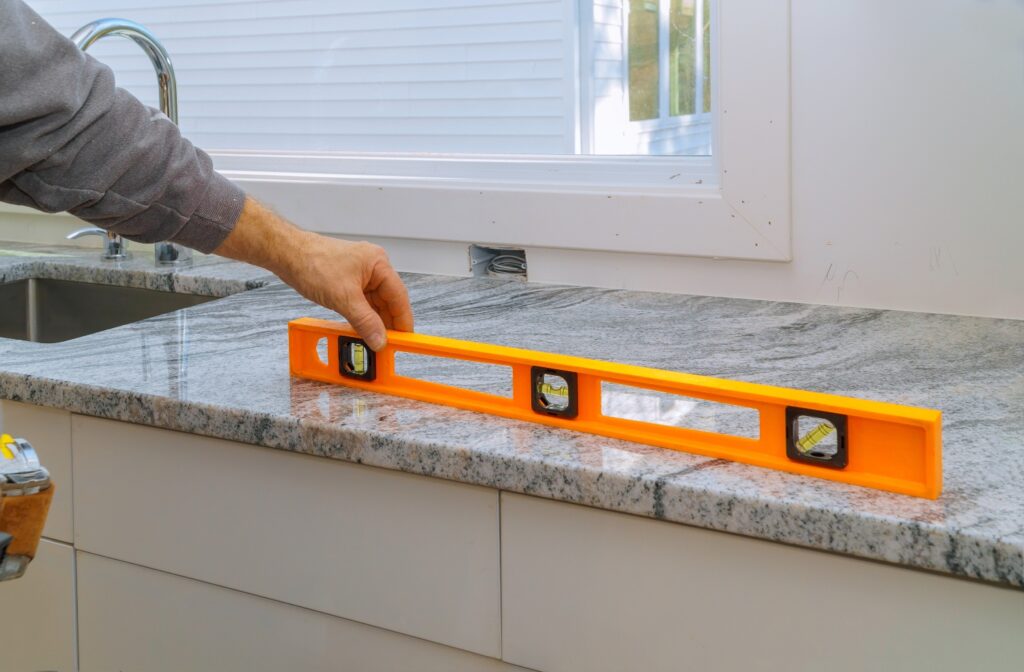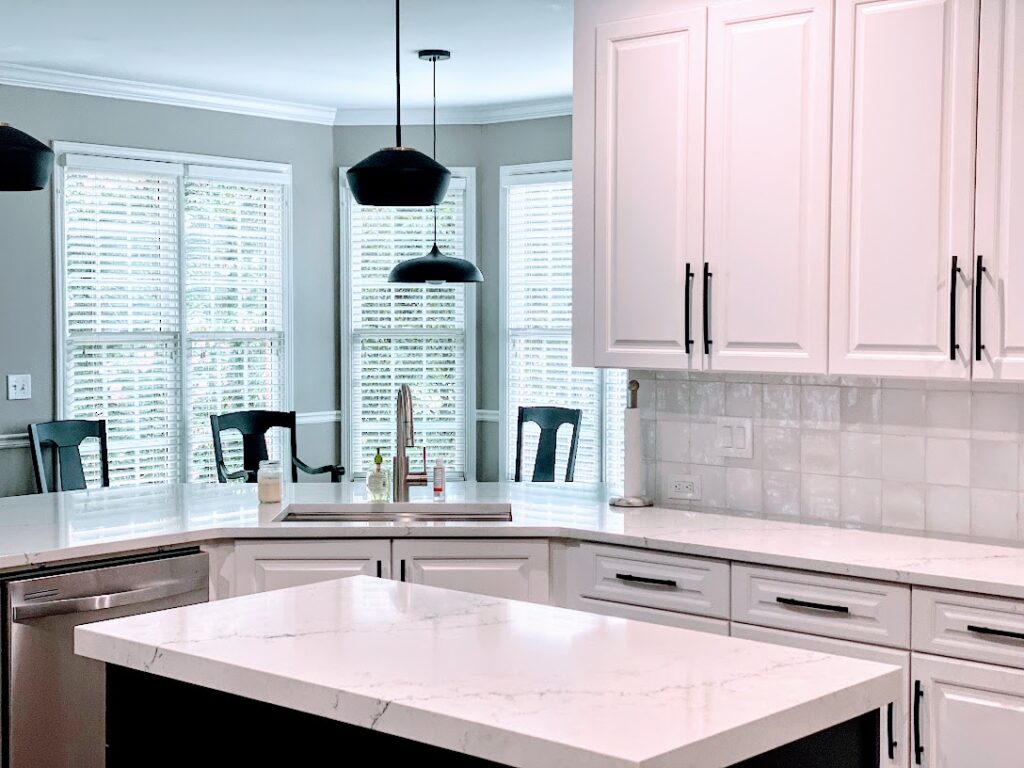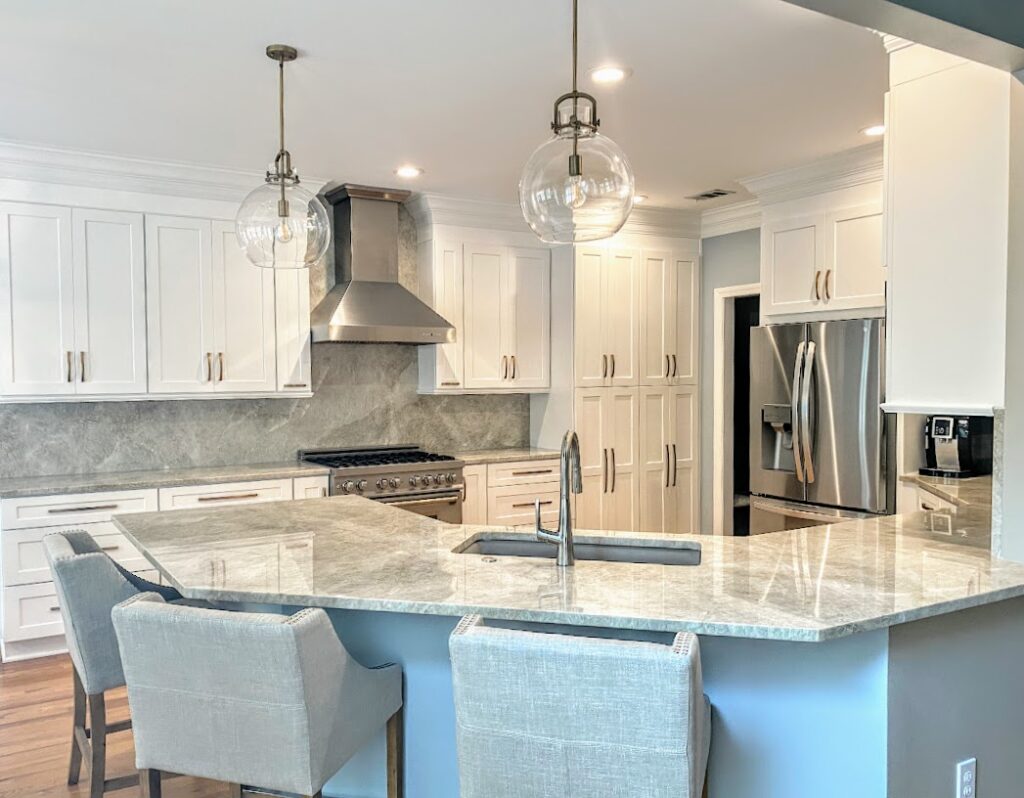Quartz Countertops vs. Solid Surface Countertops
Deciding between quartz and solid surface countertops can be pivotal when considering a kitchen or bathroom remodel. Each material brings its unique blend of composition, durability, and aesthetic appeal. Quartz countertops, renowned for their resilience, offer a sophisticated, natural stone look, while solid surface options provide versatility and seamless design. However, the choice isn’t just about looks but also practicality, installation, and long-term maintenance. Which material aligns best with your lifestyle and budget? Let’s explore the factors that might tip the scales in one direction.
Material Composition
Understanding countertops’ material composition is crucial when considering them. You’re probably weighing your options between quartz and solid-surface countertops, and knowing what goes into each can help make your decision easier.
Quartz countertops are engineered from natural quartz crystals and resin binders. Around 90-95% of the countertop is made from ground quartz, while the rest is binding resin and pigment.
This composition makes quartz incredibly durable and non-porous, which means you won’t have to worry about stains or bacterial growth. The resin contributes to its sturdiness and gives it a consistent pattern throughout the slab.
So, quartz might be your ideal choice if you’re looking for something long-lasting and low-maintenance.
On the other hand, solid-surface countertops are composed primarily of acrylic, polyester, or a mix of both, along with natural minerals. These materials are combined to create a smooth, seamless surface.
Solid surface materials aren’t as hard as quartz, but they’re still resistant to stains and moisture. The beauty of solid surface countertops is that they can be easily repaired if scratched or chipped, which could be a significant advantage if you anticipate heavy use.
Aesthetic Appeal
Many find that the aesthetic appeal of countertops plays a significant role in their selection process. When you’re deciding between quartz and solid surface countertops, you’ll notice they offer distinct looks that can complement different styles.
Quartz countertops are known for their luxurious appearance. They mimic the look of natural stone, like granite or marble, and come in a wide array of colors and patterns. This makes them an excellent choice if you aim for a high-end, sophisticated look in your kitchen or bathroom.
On the other hand, solid surface countertops offer a more seamless and contemporary aesthetic. They’re available in a vast spectrum of colors and patterns too, but their major advantage lies in their ability to be molded into any shape. This feature allows for integrated sinks and backsplashes, creating a cohesive and sleek appearance. If you’re going for a modern, minimalist style, a solid surface might be the way to go.
When considering which aesthetic best aligns with your vision, consider the overall design of your space. Quartz can provide a striking focal point with its rich, natural-looking patterns. Solid surfaces, however, offer versatility in design and a smooth, uniform finish.
It’s also important to remember that lighting in your space can affect how these materials look, so consider sampling them in your home before deciding.
Ultimately, the choice between quartz and solid surface countertops depends on the style you wish to achieve and how each material complements your existing décor.
Durability and Strength
Evaluating the durability and strength of countertops is crucial when selecting the right material for your space. You want a countertop that can withstand daily wear and tear without compromising its appearance or functionality.
Let’s explain how quartz and solid surface countertops perform in these areas.
Quartz countertops are known for their exceptional durability. Composed of about 90-95% crushed natural quartz mixed with resin and pigments, they create a non-porous and robust surface that is resistant to scratches, stains, and heat.
If you have a busy kitchen or a high-traffic area, quartz might be the ideal choice. It can withstand the impact of pots, pans, and other kitchen essentials without showing signs of damage.
In contrast, solid surface countertops, made from a blend of acrylic or polyester resins and natural minerals, offer a different kind of strength. While they’re also non-porous and resistant to stains, they aren’t as hard as quartz.
This means they might scratch more easily, but the advantage is that they can be sanded down or buffed to remove minor scratches and scuffs. So, solid surface materials provide an easy fix if your countertop endures occasional mishaps.
Both materials offer long-lasting performance, but your choice depends on your specific needs. Quartz is your best bet if you prioritize a surface that resists damage with minimal effort.
However, if you value the ability to repair your countertop easily, a solid surface might suit you better. Choose wisely, and you’ll enjoy a countertop that meets your durability demands.
Cost Comparison
When comparing the costs of quartz and solid surface countertops, it’s important to consider both initial expenses and long-term value. Quartz countertops generally come with a higher price tag upfront.
In contrast, solid surface countertops tend to be more budget-friendly.
However, don’t just focus on the initial cost. Consider the durability and longevity of the materials. Quartz is known for its robustness and resistance to scratches and stains, which means fewer repairs and replacements. This durability might offset the initial investment, making quartz a cost-effective option in the long run.
On the other hand, solid surface countertops, while more affordable initially, may require more maintenance and could be prone to damage over time. Repairs for solid surface materials can add up, especially if you’re dealing with chips or scratches. You’ll need to weigh these potential future costs against the initial savings.
Another factor to consider is the overall aesthetic and how it aligns with your home’s value. Quartz often adds a premium look that could enhance your home’s resale value. Solid surfaces offer a variety of colors and patterns but may not have the same luxurious appeal as quartz.
Ultimately, your choice should align with your budget, how long you plan to stay in your home, and your willingness to invest in long-term durability.
Installation Process
After considering the cost factors, it’s important to understand the installation process for both quartz and solid surface countertops. Both require precision, but there are key differences you’ll want to know about before making a decision.
Quartz countertops are heavy and often require professional installation. You’ll need to ensure that your cabinets can support the weight. The slabs are cut to fit your space perfectly, and any seams are carefully joined and filled to create a seamless appearance.
Due to their weight and the need for specific tools, DIY installation isn’t recommended unless you have experience and the necessary equipment. Professionals will level the surface and secure the quartz with adhesive. Once installed, it’s crucial to let the adhesive cure properly, which can take 24 hours or more.
On the other hand, solid surface countertops are more forgiving for DIY enthusiasts. They’re lighter than quartz, making them easier to handle. You can cut and shape solid surface materials with standard woodworking tools, allowing greater installation flexibility.
Seams can be nearly invisible, as installers use color-matching adhesives and sand the joints to blend them seamlessly. You might still prefer hiring a professional for a flawless finish, especially if your countertop design includes intricate curves or integrated sinks.
Environmental Impact
Both quartz and solid-surface countertops have pros and cons regarding environmental impact. When considering quartz, you’re looking at an engineered material, often comprising about 90% natural quartz mixed with resin and pigments. While quartz is abundant, the extraction and manufacturing processes can be energy-intensive. The resins used in quartz countertops can also release volatile organic compounds (VOCs), contributing to indoor air pollution.
However, many quartz manufacturers have made strides in reducing their carbon footprint by incorporating recycled materials and using environmentally friendly practices.
On the other hand, solid surface countertops made from acrylic or polyester resins combined with natural minerals offer a different set of environmental considerations. These non-porous materials often require less maintenance, which could mean fewer cleaning products and chemicals over time.
Some solid surface options also contain recycled content, which can lessen their environmental impact. The production of solid surface materials, though, often involves petrochemicals, which aren’t renewable and can have a significant ecological footprint.
Ultimately, both quartz and solid surface countertops can be part of an eco-friendly home, but it’s crucial to research specific brands and their practices to make the most informed decision. Balancing aesthetics, functionality, and environmental responsibility will help you select the right countertop.
Frequently Asked Questions
Are Quartz or Solid Surface Countertops More Resistant to Heat?
You’re curious about heat resistance in countertops. Quartz countertops generally handle heat better than solid surface ones. Always use trivets or hot pads to protect both types because direct contact with hot items can cause damage.
How Do Quartz and Solid Surface Countertops Affect Home Resale Value?
Upgrading countertops can boost your home’s resale value by making your kitchen look modern and appealing. Buyers often prioritize durable, stylish surfaces. Consider what enhances your home’s overall aesthetic and functionality for maximum return on investment.
Can Quartz or Solid Surface Countertops Be Customized to Specific Shapes?
You can definitely customize countertops to specific shapes. Both materials are versatile, allowing you to tailor them to unique designs and layouts. Just ensure you work with skilled fabricators for precise results that meet your vision.
Are There Health Concerns Related to Quartz or Solid Surface Countertops?
When considering health concerns, you’re safe with both options. Solid surface countertops are non-porous, reducing bacteria risk. Quartz countertops may release silica dust if cut improperly. Ensure professional installation and proper maintenance to minimize any potential risks.
Do Quartz or Solid Surface Countertops Require Special Cleaning Products?
You don’t need special cleaning products. For regular cleaning, use mild soap and water. Avoid harsh chemicals or abrasive sponges. A gentle surface cleaner works best for stubborn stains. Always follow the manufacturer’s care guidelines for optimal results.
Conclusion
When deciding between quartz and solid-surface countertops, consider your priorities. If durability and low maintenance are key, quartz is your best bet with its robust, non-porous nature. However, if you prefer a seamless look and easier installation, solid-surface countertops might suit you better despite potential repair needs. Both options bring unique benefits, so consider what aligns best with your lifestyle and aesthetic preferences to make the right choice for your home.

Val Carvalho is a manager at Atlanta Stone Creations, with nearly two decades of experience in the stone and design industry. In addition to her leadership role, Val plays a key part in sales and design, bringing creativity, precision, and a strong sense of style to every project. Known for her warm and collaborative approach, she builds strong relationships with both her team and her clients. Val is passionate about delivering beautiful, high-quality results and creating an exceptional experience from start to finish.

